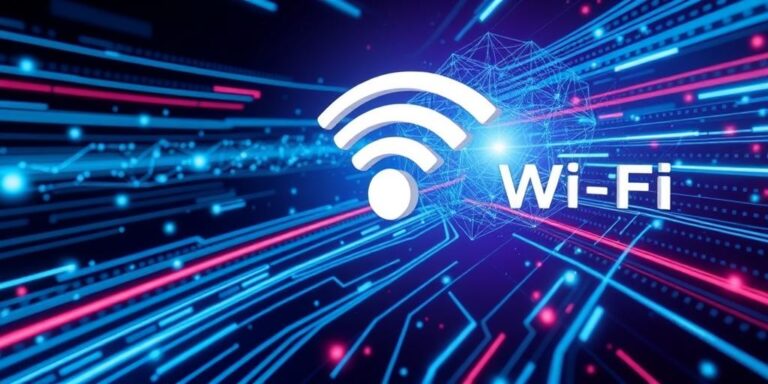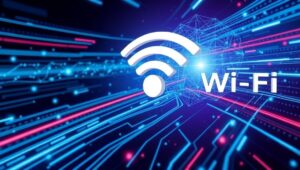The Future of Wi-Fi: Faster, More Reliable Connections (Wi-Fi 7/8 – 2025+)
The world is becoming increasingly connected, and our reliance on Wi-Fi is only growing. As we stream more videos, download larger files, and connect more devices to our networks, the demand for faster and more reliable Wi-Fi is constantly increasing. The good news is that the future of Wi-Fi is looking bright, with new standards like Wi-Fi 7 and Wi-Fi 8 promising to deliver significant improvements in speed, reliability, and efficiency.
Wi-Fi 7: What to Expect
Wi-Fi 7, also known as IEEE 802.11be, is the next generation of Wi-Fi technology. It builds upon the foundation of Wi-Fi 6 and Wi-Fi 6E, incorporating several key enhancements that will result in a significantly improved user experience. Here are some of the key features and improvements to expect from Wi-Fi 7:
- Faster Speeds: Wi-Fi 7 is expected to support speeds of up to 46 Gbps, which is nearly five times faster than Wi-Fi 6. This will enable users to download large files in seconds, stream 8K videos without buffering, and enjoy lag-free online gaming.
- Wider Channels: Wi-Fi 7 will support wider channels of up to 320 MHz, which will allow for more data to be transmitted at once. This will result in faster speeds and lower latency.
- 4096-QAM: Wi-Fi 7 will use 4096-QAM (Quadrature Amplitude Modulation), which is a more efficient modulation scheme than the 1024-QAM used in Wi-Fi 6. This will allow for more data to be packed into each signal, resulting in faster speeds.
- Multi-Link Operation (MLO): Wi-Fi 7 will introduce Multi-Link Operation (MLO), which allows devices to connect to multiple frequency bands simultaneously. This will improve reliability and reduce latency, especially in congested environments.
Wi-Fi 8: The Next Horizon
While Wi-Fi 7 is just around the corner, researchers are already working on the next generation of Wi-Fi: Wi-Fi 8. Although the final specifications are still under development, some potential features and improvements are being discussed:
- Even Faster Speeds: Wi-Fi 8 is expected to push the boundaries of speed even further, potentially reaching speeds of over 100 Gbps. This would open up new possibilities for applications like virtual reality, augmented reality, and cloud gaming.
- Artificial Intelligence (AI) Integration: AI could play a significant role in Wi-Fi 8, optimizing network performance, managing traffic, and enhancing security. AI-powered Wi-Fi could learn from user behavior and adapt to changing network conditions.
- Enhanced Security: Security will be a key focus of Wi-Fi 8, with new protocols and technologies being developed to protect against evolving cyber threats. This could include improved encryption, authentication, and intrusion detection.
Benefits of Next-Gen Wi-Fi
The advancements in Wi-Fi 7 and Wi-Fi 8 will bring a wide range of benefits to users, including:
- Improved Performance: Faster speeds, lower latency, and increased reliability will enhance the performance of all applications, from streaming and gaming to video conferencing and file sharing.
- Greater Capacity: Next-gen Wi-Fi will be able to support a larger number of connected devices without sacrificing performance. This is crucial for homes and businesses with many smart devices.
- New Opportunities: The increased bandwidth and low latency of Wi-Fi 7 and Wi-Fi 8 will enable new and innovative applications, such as virtual reality, augmented reality, and cloud gaming.
When Can We Expect These New Standards?
Wi-Fi 7 is expected to start appearing in devices in late 2024 and become more widespread in 2025. Wi-Fi 8 is still in the early stages of development, and it is not expected to be available until the late 2020s or early 2030s.
Conclusion
The future of Wi-Fi is exciting, with new standards like Wi-Fi 7 and Wi-Fi 8 promising to deliver significant improvements in speed, reliability, and efficiency. These advancements will enhance our connected experiences and enable new and innovative applications. As we move closer to a fully connected world, next-generation Wi-Fi will play a crucial role in shaping the future of communication and technology.




